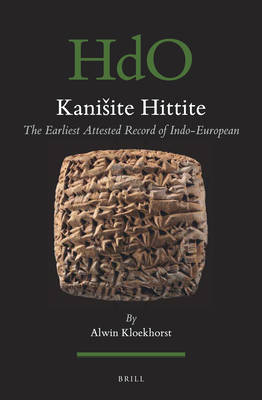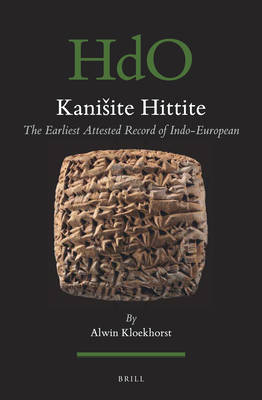
- Afhalen na 1 uur in een winkel met voorraad
- Gratis thuislevering in België vanaf € 30
- Ruim aanbod met 7 miljoen producten
- Afhalen na 1 uur in een winkel met voorraad
- Gratis thuislevering in België vanaf € 30
- Ruim aanbod met 7 miljoen producten
Zoeken
€ 291,95
+ 583 punten
Omschrijving
In Kanisite Hittite Alwin Kloekhorst discusses the ethno-linguistic make-up of Kanis (Central Anatolia, modern-day Kültepe), the most important Anatolian mercantile centre during the kārum-period (ca. 1970-1710 BCE), when Assyrian merchants dominated the trade in Anatolia. Especially by analysing the personal names of local individuals attested in Old Assyrian documents from Kanis, Alwin Kloekhorst demonstrates that the main language spoken there was a dialect of Hittite that was closely related to but nevertheless distinct from the Hittite language as spoken in the later Hittite Kingdom. This book offers a full account of all onomastic material and other linguistic data of Kanisite Hittite, which constitute the oldest attested record of any Indo-European language.
"The achievement of Kloekhorst's study is that it advances the case for classifying the local language as a predecessor of Hittite... the present state of knowledge as presented by Kloekhorst is a huge step forward and he is to be congratulated with this important milestone in Old Assyrian and Hittite studies."
-J.J. de Ridder, BIBLIOTHECA ORIENTALIS LXXVII 3-4 (2020)
"The achievement of Kloekhorst's study is that it advances the case for classifying the local language as a predecessor of Hittite... the present state of knowledge as presented by Kloekhorst is a huge step forward and he is to be congratulated with this important milestone in Old Assyrian and Hittite studies."
-J.J. de Ridder, BIBLIOTHECA ORIENTALIS LXXVII 3-4 (2020)
Specificaties
Betrokkenen
- Auteur(s):
- Uitgeverij:
Inhoud
- Aantal bladzijden:
- 316
- Taal:
- Engels
- Reeks:
- Reeksnummer:
- nr. 132
Eigenschappen
- Productcode (EAN):
- 9789004397910
- Verschijningsdatum:
- 13/06/2019
- Uitvoering:
- Hardcover
- Formaat:
- Genaaid
- Afmetingen:
- 157 mm x 234 mm
- Gewicht:
- 566 g

Alleen bij Standaard Boekhandel
+ 583 punten op je klantenkaart van Standaard Boekhandel
Beoordelingen
We publiceren alleen reviews die voldoen aan de voorwaarden voor reviews. Bekijk onze voorwaarden voor reviews.








